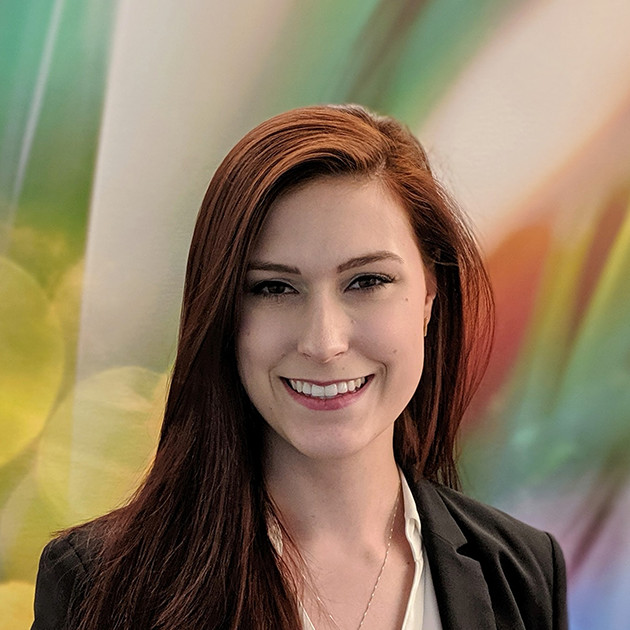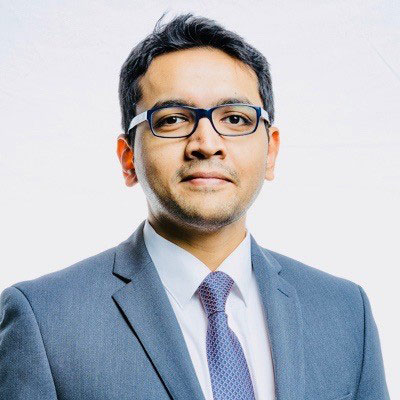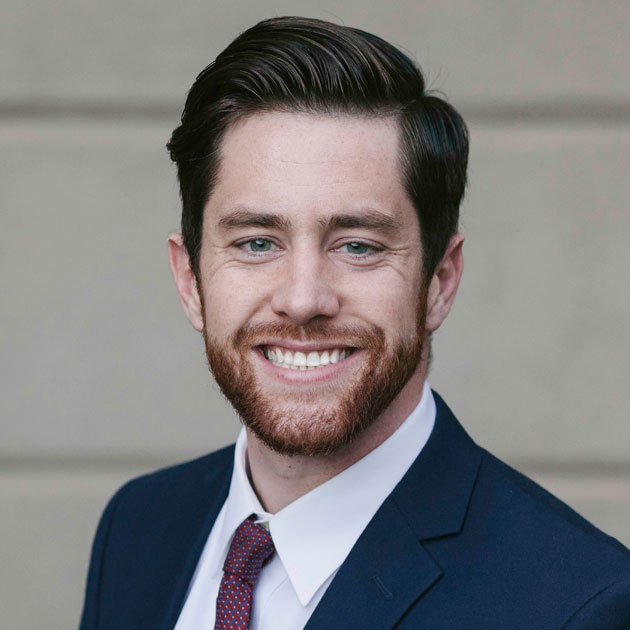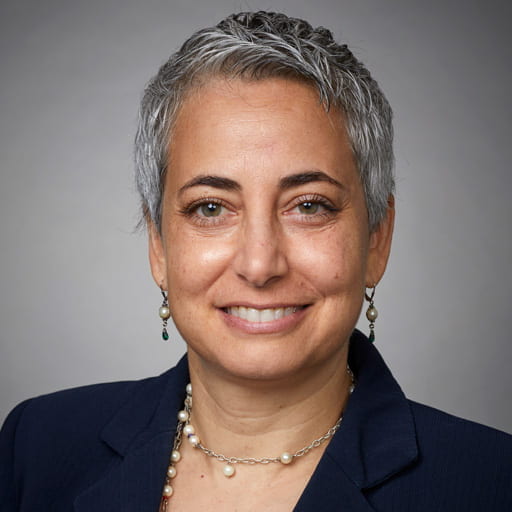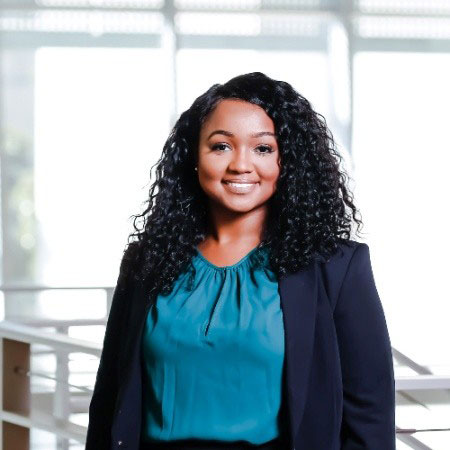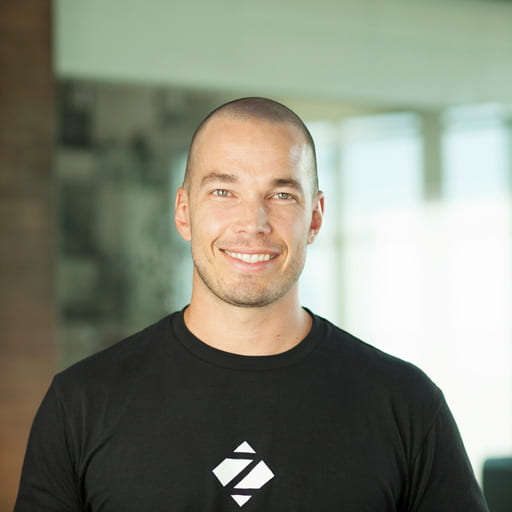
Jonathan Willson, MBA’12, is a partner at ProvenCFO, a business he co-founded with his brother David, MS’11. Willson joins host Dr. Monica Powell, senior associate dean and dean of graduate programs at the Naveen Jindal School of Management. They discuss how his MBA degree from the Jindal School challenged him to reinvent himself and add some foundational business skills to pursue serial entrepreneurship.
Introductory music plays up through Monica’s introduction.
[Jimmie] This is yet another MBA G.O.A.T. A podcast featuring conversations with the greatest of all-time MBA alumni from the Naveen Jindal School of Management at the University of Texas at Dallas. We are here to celebrate the outcomes of graduate management education and to identify remarkable examples of how the MBA program here at the Jindal School has transformed the lives of our alumni. Now, here’s Dr. Monica Powell, senior associate dean and graduate dean at the Jindal School. Take it away, Monica.
[Monica] Well hello there. This is Monica Powell, I’m a senior associate dean here at the Naveen Jindal School of Management at UT Dallas, and we are delighted today to have Jonathan Willson, one of our full-time MBA alums visit with us. He has got quite a story to tell, and we are excited to jump right into it. So Jonathan it is great to have you back at UT Dallas again. I’m sure it seems like it was a decade ago and it was how many years ago, eight?
[Jonathan] Um, seven years.
[Monica] So the seven years have really flown by.
[Jonathan] Yea, it has.
[Jonathan] So, so you’re originally from South Africa, and you found your way to Texas, and you found your way to our full-time MBA program. Tell me a little bit about how you kind of zeroed in on us and why you decided to get your MBA here?
[Jonathan] Well, I had the fortunancy of my brother Dave, who had been pursuing a master’s in accounting. He’d been doing it through an online college, and he decided that he wanted his accounting degree to have, I guess more oomph, you know, more power. And he transferred to UT Dallas. So I looked at only two schools. I wanted to be in Dallas, and um, at the time I was living in McKinney. So I looked at UT Dallas program and I looked at the SMU went to both campuses and for me, there was really no decision between the two. The size of UTD’s program, the intimacy, and just the familiarity that I felt when I came on campus, and met with Lisa and Joanna, who are both still here. They just made me feel very comfortable and made me feel like they wanted to invest in me. And that’s why I chose UT Dallas.
[Monica] And we made a bodacious investment in you, and you have delivered on every level.
[Jonathan] Thank you.
[Monica] When you look at what you’ve done since you graduated from the program and you know, we always say that we take full credit for all of your achievements when you’re an MBA. So tell us a little bit about all of the things that you have done since you graduated, because you have done, you’ve done it all; you’ve launched businesses you’ve sold businesses, you’ve moved, you come back to Texas, and all of it has been remarkably successful so tell us about that.
[Jonathan] Well, post-graduation… Well I should back up, when I was at UT Dallas, I was working for a bank. And I wanted to do something that I thought would have a little bit more legs to it – I had been in banking before, and I wanted to try to transition out of that. So I ended up joining Morgan Stanley and doing wealth advisory for about a year and a half after graduation. And I did it as a partnership with my brother Dave. Dave and I have had a history of doing things together – as immigrants – immigrant brothers. So we did that together, and during the process of doing that, we were interfacing with a lot of wealthy clients. All of them were business owners or many of them. And we were doing commercial finance transactions for them through Morgan Stanley’s private bank and discovered that one of the challenges that they faced was not being able to get relevant, reliable financial information, quick enough to get the transactions done. And so we brainstormed and came up with our first business idea which was called zenkeep.
[Monica] I remember zenkeep. So you, you had the wherewithal to identify a gap in the marketplace and then just went out there and filled it with zenkeep and just recruited a whole bunch of great clients. I remember when you launched zenkeep. You’ve since sold zenkeep though haven’t you?
[Jonathan] Yeah we, we built it up over a couple of years and decided to sell it. And we also ended up buying one of our client’s businesses while we were running zenkeep, ended up buying a little popcorn shop in downtown McKinney called Mom and Popcorn. And we transformed that business, grew it like 300% over the four-year period that we owned it.
[Monica] Wow!
[Jonathan] Went from being just a little retail store, to doing retail, online, corporate sales and also fundraising.
[Monica] So, did you have any idea, I mean I know you wanted to get out of banking and you wanted to transform yourself and move into something that you had not yet defined, but did you think you were going to become this amazing entrepreneur that was going to take incredible risk and be willing to kind of stand out there and reap all the rewards? I mean did you know that about yourself when you came in?
[Jonathan] I still have a hard time seeing it that way. We just wanted to, I think, try and fill a gap in terms of what we saw. zenkeep, for us was an opportunity to provide clients with reliable, real-time relevant financial statements that was kind of our mission statement, and we were passionate about it, it was something that we could see a transformation occurring in our clients’ businesses, in terms of how they were able to run it. So I have a hard time looking at what I’ve done and finding, you know, patting myself on the back, because I get to see the successes, the failures, some of the ways we’ve struggled, you know some of the ways that we’ve had to work through things, and it’s still a process.
[Monica] But that’s a humble entrepreneur, there’s nothing better than a humble entrepreneur and I, I love that quality about you and I think that’s partly why you’ve been so successful. So if you think about being that entrepreneur, out there trying to fill a need in the marketplace. Trying to create a product line. Trying to serve and being really passionate about it, what did you get from the MBA that had a direct impact on your ability to do that so successfully?
[Jonathan] You know the MBA for me was actually a challenge. I’ve never seen myself as an academic person. But I realized that there were gaps in the foundational knowledge that I had. And so, I saw the MBA as an opportunity to challenge myself to overcome some of the deficiencies that I felt I had. I had attempted entrepreneurship before the MBA had some successes and had some failures and, you know, I came into the program in 2011, it was kind of the middle of the credit crisis. So I was looking to reinvent myself as well. I saw it as an opportunity to reinvent myself add some foundational business skills, and I felt like I got a lot out of the program that I didn’t expect that I was going to get. I discovered a love for financial accounting which was really weird. (Laughs)
[Monica] I’m not sure an MBA would admit that, but okay.
[Jonathan] Yeah, I, I enjoyed the financial accounting piece and I enjoyed the managerial accounting piece, and those were things that I never went into the program expecting. I wasn’t sure what to expect to be honest, I just knew that I needed the opportunity to come and learn.
[Monica] You know it’s, it’s interesting, a lot of MBAs think that they’re coming into an MBA program because they want to put all the tools on their tool belt and they want to be able to use them simultaneously they want to be strategic in their decision making, and they know they have the expectation they’re going to get that out of an MBA program, but you got really involved in kind of the co-curricular experience in the MBA program, you know, I remember I think you started a student organization when you were here which was really surprising to me, given the, the topic of the organization, so I want you to talk a little bit about that. And then you got really involved in just business innovation. I mean you’re a recipient of the Texas Business Hall of Fame scholarship program. So talk a little bit about what you did outside of the program and how that kind of enriched the investment that you made here.
[Jonathan] So, as I mentioned, I came into the program not sure exactly what I wanted to be when I came out of the program; wasn’t sure if I was going to try and further my career working for another organization or whether I was going to go back and attempt entrepreneurship again. But, I noticed that UT Dallas at the time didn’t have anything in the energy space. There was no energy program. And I was toying with the idea of, you know, maybe do I want to go into the energy space? I think at the time I was thinking about going into something like energy trading or something along those lines. I approached Dean Pirkul, and asked him what he thought about setting up a program, and he wasn’t sure about it. He wasn’t sure if there was a demand for it. And so, I got to work trying to prove that there was a demand and created the UTD Energy Association. And then I use that platform to go and introduce myself to guys that were running some of the largest energy private equity funds in Dallas, which resulted in Dean Pirkul and I going together to meet with these guys and I think we eventually got one of their chief economists to come and actually give a speech here at UT Dallas, and one of the things I noticed recently is UT Dallas has a great energy management program.
[Monica] So, so, so Jonathan I would say that you’re one of the founding fathers of our master’s degree in Energy Management. You know what’s really cool about the program today, which really wasn’t an option at least not at a huge level for MBAs at the time you were here, is that we now have all of these MS programs and so many of our full-time MBA students come in and add an MS degree on the end. So they actually graduate with an MS degree and the MBA at the same time. And we’re now starting to see more of them that are exploring that combination with energy. And so, you may very well planted the seeds that brought forth the addition of that degree program to our portfolio, and we’re really grateful for that.
[Jonathan] Thank you.
[Monica] I mean we’re Texas. I mean, we should have an energy program right?
[Jonathan] That’s what I thought I was, I was thinking Dallas… Dallas? UT Dallas has to have an energy program.
Music begins….
[JIMMIE] This episode is brought to you by the UT Dallas MBA program, top-ranked nationally and in Texas. The UT Dallas MBA combines a robust core with 13 concentrations. You have an option to add a second master’s degree. Your choices for that include five STEM-designated programs. The MBA program has full-time, part-time, online and other formats. They give you flexibility to fit your MBA education into your busy schedule. The skills and training you will receive are what top employers are looking for. For more information, visit us online at jindal.utdallas.edu/mba
(Music resumes)
[Monica] So when you joined the full-time MBA program and you, you went and visited a competitor school and you’ve got the perspective of a larger program versus an intimate program. And obviously, program fit is really important for every student. So, when you got into the classroom those first early days and you saw the amazing global diversity in the room. Did that surprise you?
[Jonathan] No, I had obviously researched what the demographics were going to look like going into the program, so I was really pleased to see that there was a diversity inside the classroom. And it also helps in terms of different perspectives, learning different things from different people. So, it was good, and I really liked the class size.
[Monica] Class size is a real advantage; we only have 50 students in our full-time MBA program today. We’ve kept it intentionally small for just that particular reason.
[Jonathan] I love that about the program, honestly, because I you know to SMU and took a look at what they were offering and it was literally like four or five times the class size, and I could tell that I was just going to be a number and just kind of lost.
[Monica] You know, it’s kind of amazing. In my role as a senior associate dean and graduate dean, I still have time to get to know every single one of the students in the full- time MBA program, and I think when you’re at a larger school you can’t get to know 200 students it’s just, it’s not realistically possible. So that’s one of the unique features of our program which I think is a lot of fun. If you think back on the program what’s your favorite memory of all-time favorite memory of all time? Could it have been on an international trip?
[Jonathan] I was gonna say that I you know we got to go to the Czech Republic
[Monica] Right.
[Jonathan] So, that was an awesome experience. It was really great. Just being out there being with my classmates, kind of getting an international experience like that.
[Monica] Especially an international guy, getting an international experience, with a whole bunch of international people – yeah international people at an international destination.
[Jonathan] laughing…. International people …
[Monica] That’s really cool. So you were also active in the Texas Business Hall of Fame. So you apply to it, and I mean that’s a big competition and gave a nice little purse attached to it for you to use to invest in your own business opportunities. Tell us a little bit about what it was like to be a recipient?
[Jonathan] It was great I you know. I didn’t know what to expect. I didn’t know if I was gonna win it, I kind of thought I was answering, like the lotto.
[Monica] Laughing….
[Jonathan] You know, but it gave me an opportunity to share the idea that I had, and it was an idea that I eventually executed on not exactly how I’d hoped to execute on it. I did use the money, I invested some of my additional savings in order to launch a business. But, it taught me a lot, you know, the whole process of applying for the scholarship, winning the scholarship, going to that event in Houston, at the time, meeting some of these incredible business entrepreneurs that have contributed immensely to the Texas economy. It was a really good experience.
[Monica] Yeah, it’s amazing for our students to go down there and realize that they’re standing, you know, shoulder to shoulder with Clayton Williams or they’re standing shoulder to shoulder with Herb Kelleher, who is no longer with us, but really great Texas entrepreneurs that have changed the landscape of the business economy in Texas, which is really what that program is all about. They really want to invest in people that are going to really contribute to the economy and help, help it grow.
[Jonathan] I had no idea that it was so prestigious when I applied for it. I really had no idea- never heard of the Texas Business Hall of Fame but when I got to go to the event, I mean those black tie event. I think I use part of the proceeds to buy myself a tuxedo.
[Monica] Laughing – So you could play the part.
[Jonathan] So I could go down there and feel like I fit in.
[Monica] You have a brother who is an alum of the Jindal School as well. So, how is that partnership? It seems like you guys are partners on a lot of things on business and ideas and the things that you’re passionate about they’re the same. It’s like where one brother goes the other brother goes, but I don’t think he did an MBA. Can you tell us a little bit about how was he party to bringing you to UT Dallas?
[Jonathan] Yeah, so David was influential, for sure. So, I’m the older brother, but David definitely set the example for me; he started pursuing a graduate degree, before I did. And I would say we have a friendly competition going. So as soon as he started doing his graduate program, I thought to myself, well I need to do something. I mean, I need to better myself, so he was doing a master’s degree in accounting at UT Dallas. And I decided I’m gonna look into the MBA. I couldn’t see myself doing an MS, you know, Master’s in accounting but definitely the MBA appealed to me.
[Monica] You know it’s interesting. If you read the Wall Street Journal or Forbes, or The Economist, you know, there’s all this talk about that the MBA is not really a relevant degree today. You hear of a number of full-time MBA programs that have closed across the country. In fact, the University of Illinois recently closed their full-time and their part- time MBA program, and are going exclusively with an online option. What do you think about the relevance of the MBA? And is it relevant to people that are out there that are like you? And do you think it makes a difference in terms of either helping someone change the trajectory of their career or preparing them for, you know, a growing, evolving type of business career?
[Jonathan] Well, if you think about, you know what is, what is the MBA was acronym mean Masters in Business Administration. I think it prepares anybody who comes in, prepared to do the work to either change the trajectory of their career or take them on a different path, put them into management if they didn’t feel like they had management opportunities. For me, it’s given me a more rounded skillset as far as being a business owner, you know, I felt like I was able to focus on a variety of different subjects while going through the MBA. And I found a passion. You know the surprise in financial accounting and managerial accounting. I look at what I’ve done, you know I’ve been able to partner with my brother and build a successful bookkeeping business. And today, we’re proud owners of proven CFO which is an outsourced CFO solution. So I, I think the MBA program is, is a must for anybody that would like to build on the skill set that they have and really elevate themselves.
[Monica] And be really adventurous as you’ve been. I mean you were you were here in Texas when you went through the program and then you left and went off to Utah. Gorgeous aesthetic there, and now you’re back in Dallas again.
[Jonathan] Yeah.
[Monica] So what brought you back to Dallas? I know it was, just you know, the great weather, the Tex-Mex food, being close to your alumni classmates, I’m sure.
[Jonathan] All of the above. All of those things I’ll be Texas for me it has felt like home. Out of the 20 years that I’ve been in the States about 60% of time has been in Texas, and Texas is a great place it’s filled with great people, friendly people, it’s got a great economy is a lot of reasons to be in Texas.
[Monica] I think it’s a great place to raise kids, yeah it’s a fantastic career.
[Jonathan] Yeah.
[Monica] Which is terrific. When you think back to the MBA program. Is there a particular professor that you hold in great honor because of how they transformed you? Is there a professor who terrorized you because the subject matter was too difficult? If you think back I mean, what are those extremes as polar opposites.
[Jonathan] I don’t think I had any professor that antagonized me. Thankfully, I was, I try to make friends with every single person that was going to be my teacher. But in terms of somebody that had an impact on me in terms of my understanding was Suresh Shraddha Krishnan.
[Monica] Financial Accounting.
[Jonathan] Financial Accounting. I, I was amazed at his teaching style and how he was able to, you know, introduce these maybe what some people would consider boring topics and make them really interesting.
[Monica] He is definitely passionate; talk about somebody with energy. I mean, financial accounting is really a language, you’re learning a language, and then how to apply it, and he makes it very interesting and I’m not even a fan of financial accounting,
[Jonathan] Suresh. Suresh has incredible body language. So I’ve never seen anybody teach financial accounting with as much with their …
[Monica] Whole body…laughing
[Jonathan] Animation.
[Monica] So if you could give us one solid piece of advice for a young person who’s thinking about making the investment in an MBA and particularly here at UT Dallas, what piece of advice would you give them?
[Jonathan] Come in and put your whole heart and effort into the MBA. What you put in is what you’re going to get out. You know, don’t come into the program expecting somebody else to do the work for you. If I look at my classmates, and some of the young folks that were in the program, I consider myself one of the older people in the program when I went through it. But if I look at some of my younger classmates, the ones that have done very well, were the ones that were very conscientious and they came in, they did the work. When they were on group assignments, they were the ones trying to pull the weight, and they’ve all done very well. They’ve done great with it.
[Monica] Do you keep up with any of your classmates?
[Jonathan] Only on Facebook.
[Monica] Only on Facebook. Well, that’s okay. Well, we hope that when the podcast is produced and you have a chance to share that you were one of the guests on, on the MBA G.O.A.T. that they’ll want to come and be on the G.O.A.T too.
[Jonathan] I will to definitely promote this for sure.
[Monica] Well terrific well you’ve been an enormous supporter of the school and have helped us in a whole multitude of ways with rankings, with sharing with people the great program that we have and we appreciate that and we hope you’ll stay in touch with us.
[Jonathan] I really appreciate UT Dallas’ contribution as well. You know I had never seen myself getting an MBA. And I’m glad that I did it. I did in my mid 30s. So for those of you listening that might feel like you’re too old, you’re, I don’t think you’re ever too old to come and learn. And I’m very grateful for the things that the school has given me mindful of those things. Well, so thank you.
[Monica] You’re very welcome. We’re so glad that you can come and join us today, thank you Jon.
[Jonathan] Thanks Monica.
[Monica] Thank you so much for listening to today’s call. Thanks for listening to this episode of Yet Another MBA G.O.A.T. Podcast. Join us online at mbagoat.com to find episode notes, links and more. Be sure to subscribe to Yet Another MBA G.O.A.T. podcast on Apple Podcasts or your favorite podcasting app. If you like what you hear, please leave us a 5-star review. That will help spread the word about the podcast and the Jindal School’s MBA programs. To learn more about The Jindal School’s MBA Programs, visit us online at jindal.utdallas.edu/MBA.

